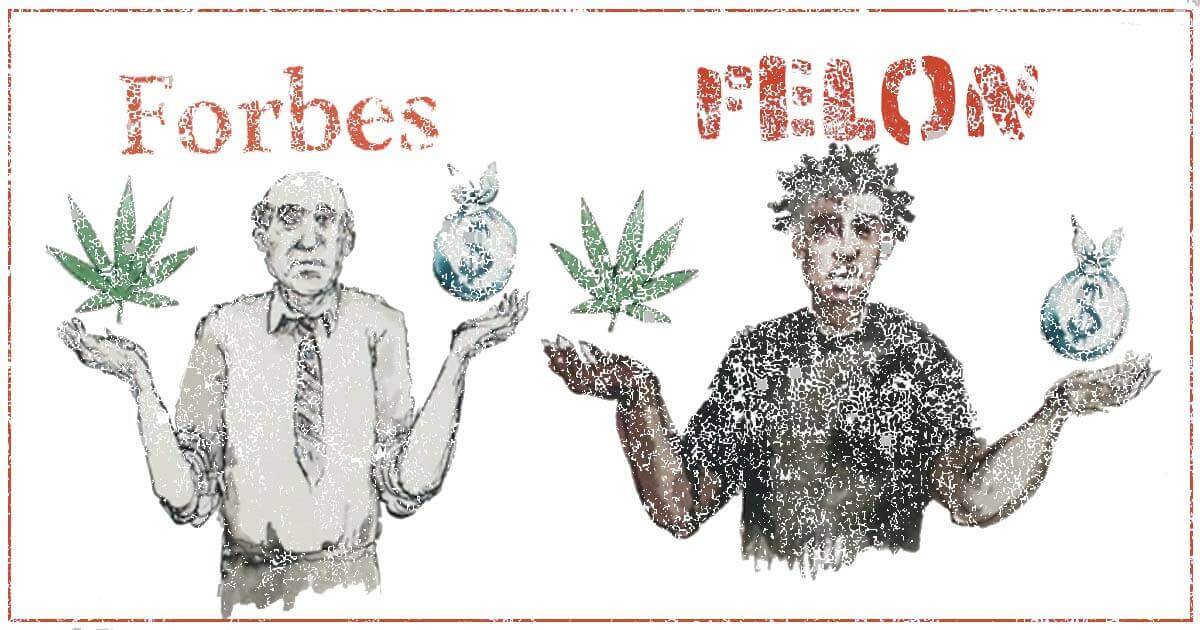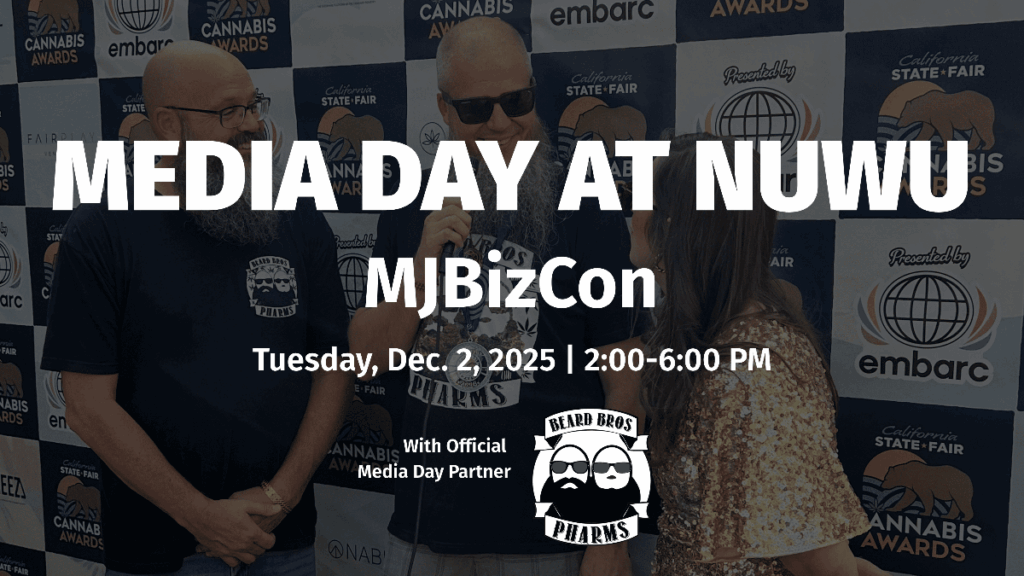Advocacy Newsflash: Weed still isn’t legal in California.
It has been decriminalized for consumers aged 21 and up and a taxed and regulated commercial market exists under the framework of Prop64.
When Prop64 passed in 2016, many Yes voters probably thought it meant “legal weed” was on the way, but after Colorado and Washington blazed their trails to adult-use recreational cannabis markets in 2014, it became pretty clear that Cali would follow with a license/regulate/tax system of its own…. And boy has it…
It is not uncommon for a retail customer at a licensed dispensary in California to pay 30-35% in taxes on their purchase, an added cost unheard of in truly legal markets like fruits or vegetables.
This stack of taxes seen at checkout comes after a series of other taxable stops on the supply chain, starting with licensed farmers themselves who currently have to pay a cultivation tax of $161.50/lb. It can cost them $120 to have another licensee trim that pound and current wholesale prices have plummeted as low as $500/lb. So the state and the trimmer make more than the farmer?
This seems like a recipe for failure.
Others who supported Prop64 did so believing that it would end the draconian practice of locking folks up over the cannabis plant.
Cannabis is certainly a much lower priority for law enforcement these days, and that is a good thing, but it doesn’t really feel like a sure thing.
For the most part, law enforcement tends to loudly oppose commercial cannabis activity which has led, in large part, to a vast majority of the municipalities in California banning such activity (no grows, no stores, no nothin’) even after the residents voted in favor of it.
That opposition is felt in real-world situations like in the Bay Area where caravans of vehicles filled with armed robbers are terrorizing licensed cannabis businesses and the cops are nowhere to be seen as barricades are broken, guns are brandished, and companies are turned upside down.
We were told by Prohibitionists that “legal” cannabis dispensaries would make neighborhoods less safe. No matter where you look, the opposite is, in fact, the case. But now, suddenly, Hollywood-style break-ins are happening all night long and law enforcement representatives and bootlickers can point and say “Look! Danger!”
So, yeah, it sure feels like failure is baked into Prop64, and into many of the emerging adult-use cannabis markets that have been crafted in its shadow.
All of these simultaneous threats to the stability of the licensed market and the people who operate in it are leading to what some frontline activists are referring to as The Drug War v2.0.
The #NoDrugWarV2 campaign comes from the grassroots of the cannabis culture, from folks who recognize that as the licensed market struggles those out of touch but in power continue to point the finger at the unlicensed street market as the main culprit, rather than turn that crooked digit back at themselves and their failed policies.
There is no doubt that the unregulated street market is dominating the licensed market in sales, but to ignore the many deterrents (like a 35% tax that your plug won’t charge) written right into the law is shortsighted, at best.
As ignorant lawmakers and regulators continue to blame the streets, and as some frustrated licenses begin to echo that whine, law enforcement licks its lips waiting for the greenlight to start doing their Call of Duty cosplay by kicking down doors and locking up non-violent potheads again.
As we know, they will not be making these arrests without prejudice and people of color are sure to have far more interactions with law enforcement than their white peers will. This cannot be allowed to happen…again.
CANNABIS: A GATEWAY DRUG TO SOCIAL EQUITY ADVOCACY
One of the main groups championing the charge against a repeat of the War on Drugs is Supernova Women, a California-based 501c3 non-profit organization whose mission is to “empower people of color to become self-sufficient shareholders in the cannabis economy”.
This female-founded powerhouse of advocacy and opportunity is also taking point in the battle to reduce or eliminate the excessive taxation along the cannabis supply chain that is crippling small farmers and craftspeople and especially social equity operators.
Social equity programs had been an afterthought, at best, for regulators in California and in other states until groups like Supernova Women were formed to advocate for the importance of ensuring that communities of color and communities most impacted by the first failed War on Drugs would not be left out of the potentially-lucrative licensed marketplace.
Even after years of tireless lobbying, networking, advocacy, and action on the subject of social equity, just 4.3% of the licensed cannabis companies in this country are Black-owned.
RELATED READING: Without Advocacy, Systemic Bias Ensures that Social Equity Fails
This stat comes from a virtual town hall meeting that Supernova Women hosted on January 19th, 2022 alongside a company called Ecotone, a leading impact analysis and social value communication consultancy firm.
These two groups, along with a list of experts in the fields of cannabis, social equity, and legislation, collaborated on an in-depth report called the Impact of Social Equity.
In it, “impact” is measured by an acronym of SROI or Social Return on Investment. In other words, a properly-funded social equity program requires an investment from society and this report looks at what society can expect to get back on their investment.
Both Ecotone and Supernova Women reiterated throughout the town hall meeting that aggregating the data for such a report is no easy task, as this concept is relatively new here in Cali and very new in other parts of the country.
However, compiling all available information, their report estimates that the cost to society for each approved social equity application will be $37,233.
Let’s set aside the fact that cannabis tax revenue in these states and municipalities far, far, far exceeds these costs and focus on the fact that the report found that the projected benefits back to society amounted to $44,575 per equity operator.
In other words, every dollar we put into social equity programs, $1.20 goes back into society due to more people working, buying, surviving, and ideally thriving.
When certain additional-but-basic ideals are met – like funneling cannabis tax revenues back into communities by way of early childhood and public education, employment training, mental health, expungement assistance, etc. – the projected SROI generated by a social equity program increases to $4.56 for every $1 spent.
Now we’re talking and politicians and regulators better start listening.
In that scenario, society spends $37k of its free weed money and gets $175k back… per equity operator. You’re welcome!
Don’t hire or militarize any more cops with that money and watch the returns and revenues continue to compound on themselves as long-embattled communities are revived.
This report was a gift to the cannabis advocacy community and even more so to any progressive-thinking politicians or lawmakers who like things like budget surpluses and happy voters.
Groups like Supernova Women are providing a blueprint for success in the green renaissance and it begins with people of color.
As a true non-profit organization, Supernova Women relies on grants and generous donations to continue its advocacy.
The Social Equity Impact Report was made possible, in part, by funds donated to the cause by Weedmaps.
For more information about donating to Supernova Women, CLICK OR TAP HERE





















